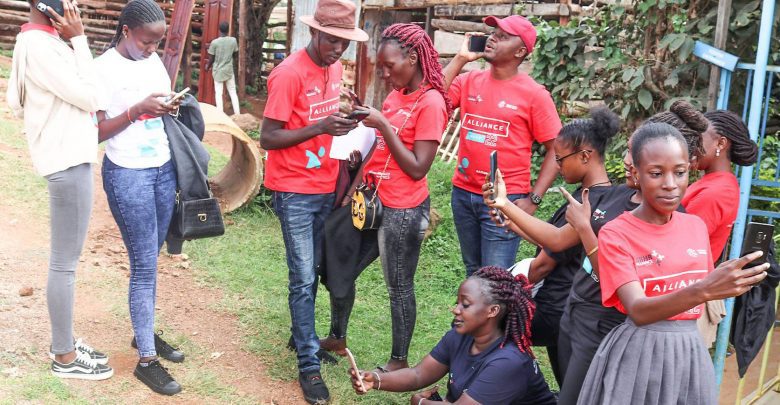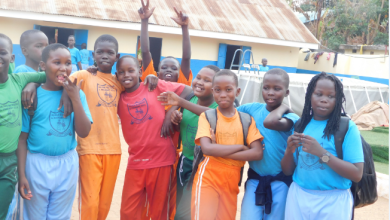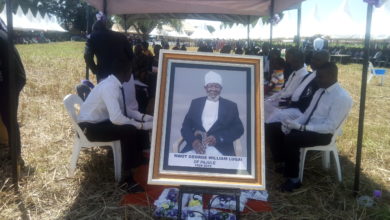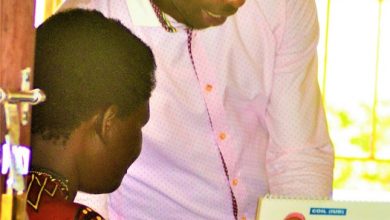
CulturesEducationHealth
To secure an equal future, Youth need equal access to digital tools and information
“We must not tolerate a digital environment that reinforces inequality. Instead, let’s use these tools to close the gender power gap for young people,” said Ronnie Limo, a Youth Action Committee RHRN-II member in Kapchorwa district in a statement observing the day.
By Rashidah Mwanga
In Uganda, digital technologies are fueling explosive growth, innovation, and connectivity.
However, these tools are also causing new types of inequalities.
Some young people are less likely to use the internet than others; in some areas, boys use the internet four times more than girls.
In Uganda, girls are less likely than boys to own mobile phones. Some may regard technological barriers as a form of protection against malicious users. However, restricting girls’ access to essential information and services robs them of the ability to make informed decisions for themselves, their bodies, and their futures.
Reproductive Health Uganda (RHU) is calling on leaders to ensure that young people, particularly girls, are empowered not only in their communities but also in the digital environment on August 12, 2022, the International Day of Youth.
This entails both broadening access to these technologies and putting safeguards in place to prevent exploitation and abuse.
“We must not tolerate a digital environment that reinforces inequality. Instead, let’s use these tools to close the gender power gap for young people,” said Ronnie Limo, a Youth Action Committee RHRH-II member in Kapchorwa district in a statement observing the day.
RHU works with young people and youths in most areas of Uganda to develop digital tools and platforms that deliver sexual and reproductive health information and services, as well as to empower those who have been left behind.
The ASK RHU chatbot, discussion books, Facebook, Instagram, and WhatsApp groups are all options.
It is estimated 46 per cent of women, especially those in rural areas cannot make their own decisions about sex, pregnancy, use of contraception and health care, according to recent data (PMA, 2021), and too few young people have access to comprehensive sexuality education.
“Because of the limited knowledge of family planning and access to services, young people like me get pregnant earlier,” said Mary Gorreti Karungi, 22, in Kaguma village, Kabalore district, who educates young mothers who dropped out of school.
 Digital tools can help fill these gaps. Aldon Walukamba Media Advocacy and Documentation Coordinator recently helped RHU test out a chatbot called ASK RHU in Central (Kampala), Sebei and Rwenzori sub regions of Uganda, which helps users find sexual and reproductive health information and services.
Digital tools can help fill these gaps. Aldon Walukamba Media Advocacy and Documentation Coordinator recently helped RHU test out a chatbot called ASK RHU in Central (Kampala), Sebei and Rwenzori sub regions of Uganda, which helps users find sexual and reproductive health information and services.
“We need counsellors like ASK RHU,” Aldon Walukamba said, “to access information so we can make informed decisions in real-time.”
Nonjudgmental advice from digital sources is also making a difference in various regions of Uganda, where the Right Here, Right Now – II project through the SRHR Alliance has introduced a digital platform on WhatsApp, Facebook and Instagram. Particularly WhatsApp groups encourage adolescent girls to seek knowledge and speak openly and honestly among others in a dialogue manner about sensitive issues. The online platforms are able to reach girls with a serious need for education on menstruation.
Follow-up campaigns helped to dispel common myths and up send menstruation stigma. “Menstruation is a healthy issue that should be addressed openly,” a user commented as part of the discussion in Kabalore district.
Girls are also receiving accurate health information through tools like talking books, a helpline tool that answers reproductive health questions and provides psychosocial support. Sexual reproductive health counsellors also host weekly Twitter and Facebook Live sessions to answer adolescents’ questions.
The service, supported by RHRN- II and the Ministry of Health and Education, is targeting vulnerable and crisis-affected girls. In the aftermath of the COVID -19 pandemic, for instance, a person named Crescent Mainuka, from Kiragata village learned about Twitter live sessions from a youth advocate, Rachael Mbonabana. Online live sessions also provide information, in the local dialect, in the refugee camps of Rwenzori sub region of Uganda.
“I hope digital reproductive health sessions and applications will help to reduce social stigma,” Mainuka said. “We may also be able to prevent child marriages.”
In fact, Twitter chat sessions on SRHR in Kapchorwa empowered a young person named Nafuuna Edna in Kabeywa village to do just that.
The theme for International Youth Day 2022 is “Intergenerational solidarity: Creating a world for all ages to end teenage pregnancy through access to information”




